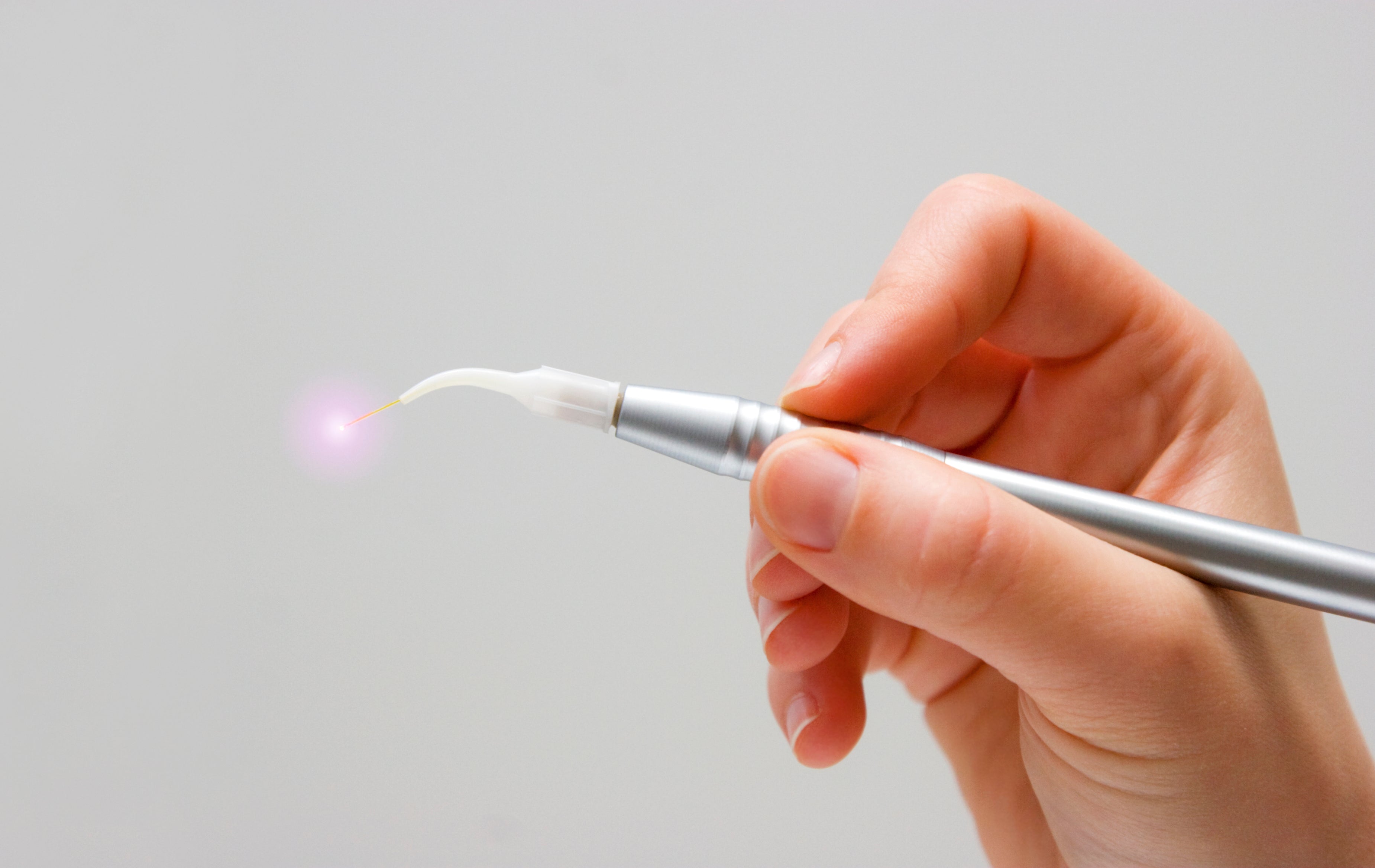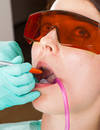No products in the cart.

Introduction: Implant recovery is a critical phase in the dental implant treatment process, and utilizing advanced techniques and technologies can greatly enhance patient outcomes and experiences. One such advancement is the use of soft tissue diode lasers for implant recovery procedures. In comparison to the traditional methods, soft tissue diode lasers offer distinct patient benefits that contribute to improved healing, reduced postoperative discomfort, and enhanced overall satisfaction. Let's explore these benefits and understand how they translate into advantages for the dental practice.
- Reduced Postoperative Discomfort: Soft tissue diode lasers provide precise incisions and cauterization, resulting in minimal bleeding, reduced tissue trauma, and less postoperative discomfort for patients. This improved patient comfort is confirmed by Gordan Christensen's Clinicians' Report, which highlights the reduced pain associated with soft tissue diode lasers in implant recovery procedures (Christensen, 2018). Minimizing postoperative discomfort significantly contributes to a positive patient experience and fosters trust in the practice.
- Accelerated Healing and Tissue Regeneration: The use of soft tissue diode lasers in implant recovery promotes accelerated healing and tissue regeneration. The laser's ability to selectively remove diseased or damaged tissue while preserving healthy tissue stimulates faster healing and reduces the risk of complications. A study published in the Journal of Oral Implantology found that soft tissue diode lasers enhance tissue healing and promote successful osseointegration around dental implants (Mozzati et al., 2017). Patients benefit from quicker recovery times and improved implant success rates.
- Minimized Risk of Infection: Soft tissue diode lasers have been shown to provide effective bacterial decontamination during implant recovery procedures. By incorporating laser energy, they assist in reducing bacterial colonization around the implant site, minimizing the risk of infection. This is particularly crucial during the early stages of implant healing. Research published in the Journal of Clinical and Experimental Dentistry demonstrated the antimicrobial effects of soft tissue diode lasers in reducing bacterial counts around dental implants (Crespi et al., 2019). Patients can have greater confidence in the success and longevity of their implants with reduced infection risks.
- Enhanced Aesthetic Outcomes: Soft tissue diode lasers enable precise soft tissue contouring and sculpting, resulting in improved aesthetic outcomes for implant-supported restorations. The lasers allow for gentle tissue recontouring, ensuring harmonious gingival margins and optimal soft tissue aesthetics. Patients appreciate the natural appearance and esthetic balance achieved through laser-assisted implant recovery procedures, leading to increased satisfaction and confidence in their restored smiles.
Incorporating soft tissue diode lasers for implant recovery procedures offers notable benefits for patients, including reduced postoperative discomfort, accelerated healing, minimized infection risks, and enhanced aesthetic outcomes. These patient benefits contribute to increased satisfaction and positive word-of-mouth referrals, ultimately benefiting the dental practice. By embracing advanced technologies and delivering superior patient experiences, dental practices can establish themselves as leaders in implant dentistry and attract a loyal patient base.
References:
Christensen, G. J. (2018). Lasers in dentistry—2018. Clinicians' Report, 11(7), 1-4.
Crespi, R., Capparé, P., Toscanelli, I., Gherlone, E., & Romanos, G. E. (2019). Histologic and Microbiologic Wound Healing after a De-epithelialized Technique with the Use of a Diode Laser in Implant Surface Decontamination: A Randomized Clinical Study. Journal of Clinical and educational Dentistry.
Leave a comment



